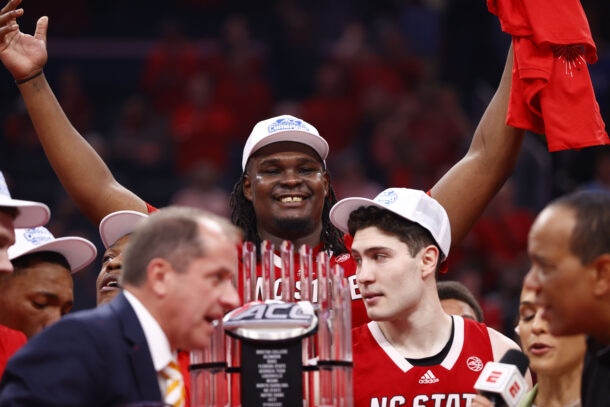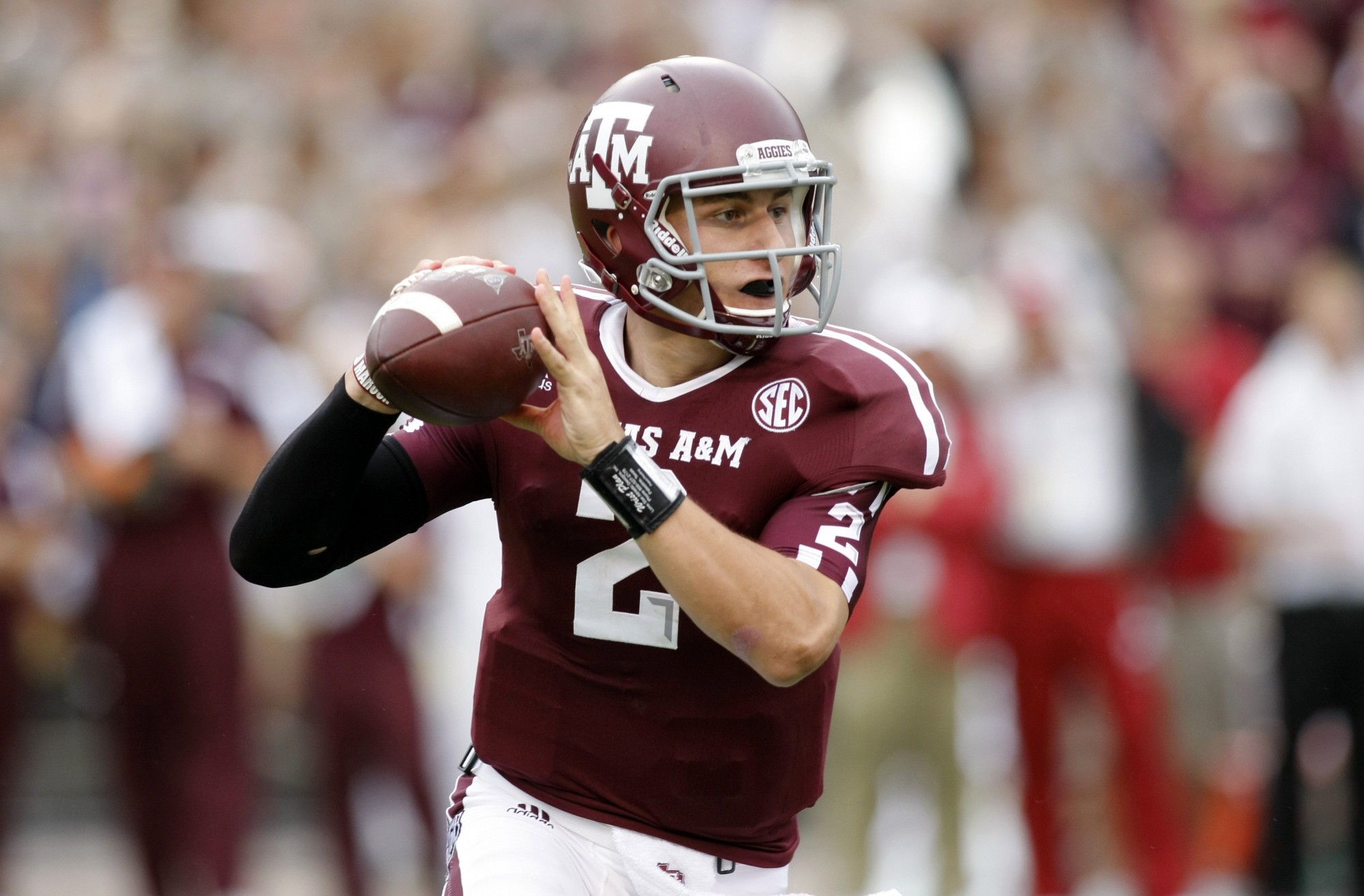
Did The ACC Die Today?
That’s the social media handle used by an account dedicated to trolling those predicting — and in some cases rooting for — the conference’s demise.
It’s also a legitimate question, considering the current state of college athletics and the 2 lawsuits that continue to hang over the league.
Both of those lawsuits, brought by Florida State and Clemson, remained bogged down in discovery and motions with no resolutions in sight. The same goes for the countersuit filed by the ACC.
The slow-moving legal machinations helped put the focus back on the playing field in 2024.
It’s a year that began on a high with a memorable basketball tournament, Final Four teams on both the men’s and women’s sides and conference teams making up half the 8-team bracket at the College World Series.
Even though it ran out of steam late with disappointments in football and a historically bad start to the men’s basketball season, the overall result was still a win, because in the end, the answer to the website’s question is still “no.”
The ACC didn’t die today.
Now that the conference has made it through another year, here’s a look back at the top 10 stories from a roller-coaster 2024:
10. A golden summer in Paris
The ACC might be lagging behind the other power conferences in football and men’s basketball. But there’s at least one area in which it can claim to be the best of the best: the Olympics. Athletes with connections to the league brought home 89 medals from the Paris Games last summer, including 36 gold. If the ACC were a country, it would have placed 3rd on the medals table behind only the U.S. and China. Of course, a lot of those medals were earned by athletes representing Cal and Stanford, none of whom actually competed in the ACC. But hey, when you have a chance to boast, go all out. Beyond the newcomers, Virginia led the way with 15 medals, including multiple golds by swimmers Kate Douglass and Gretchen Walsh.
9. A pair of Playoff teams and a Heisman finalist
Going into the final week of the regular season, there was a realistic chance of the ACC getting 3 teams into the College Football Playoff’s inaugural 12-team field. Then Clemson lost to South Carolina and Miami coughed up a 21-point lead and got beat by Syracuse. And just like that, it appeared as though the ACC would be a 1-bid league. The league ended up with 2 Playoff teams, newcomer SMU and Clemson, both of whom lost their opening-round games. And Miami ended up with a consolation prize, with quarterback Cam Ward going to New York as the ACC’s first Heisman Trophy finalist since Pitt quarterback Kenny Pickett in 2021.
8. A new coach rekindles an old dynasty
After 47 years and 21 national championships as the women’s soccer coach at North Carolina, Anson Dorrance decided it was time for a change. Just 5 days before the start of the season, Dorrance stepped down, turning the reins over to his long-time assistant Damon Nahas. The surprise move seemed to energize the Tar Heels, who went on to win their first title since 2012. Olivia Thomas scored on a free kick in the 61st minute for a 1-0 win against ACC rival Wake Forest in the final to end the longest championship drought in program history and earn Nahas a promotion as UNC’s permanent coach.
7. A historically bad start for ACC basketball
The ACC likes to bill itself as the nation’s premier college basketball conference. And that was once the case. But not anymore. Between the loss of Hall of Fame coaches, expansion that has watered down the product and the spread of talent nationally through the transfer portal and NIL, the league has lost much of its luster. It’s a downward trend that has accelerated to historic proportions this season. The ACC’s nonconference winning percentage of .641 (123-69) is its worst since 1968-69. Things have gotten so bad that the league currently has only 1 team, No. 4 Duke, ranked among the nation’s AP Top 25. And it was embarrassed in its head-to-head competition against the SEC last month, losing 14 of 16 matchups in the SEC/ACC Challenge.
6. FSU goes from first to worst
When the Seminoles ended 2023 with a 63-3 loss to Georgia in the Sugar Bowl, it was written off because of all the opt-outs that followed the previously undefeated team’s Playoff snub. But it turned out to be an ominous sign. Things started badly for FSU in 2024 with a Week 0 loss to Georgia Tech in Ireland. And they got worse from there. Bad portal decisions, even worse karma and an offense that ranked next-to-last among FBS programs at just 15 points per game led to a 2-10 finish. One year after winning the conference championship, Mike Norvell’s team went 1-8 in the ACC to become the first team ever to place 17th in the league. It was also the first time in school history that the Seminoles finished last in their conference.
5. Four for Omaha
The SEC/ACC Challenge is a basketball event held in November. But it’s a title that could easily have been used to describe this year’s College World Series. For the first time since the event expanded to its current 8-team format in 1950, only 2 conferences were represented in Omaha — 4 each from the ACC and SEC, tying the record for most teams from a single league. Florida State, North Carolina, NC State and Virginia all won their Super Regionals to advance to Omaha. The Seminoles advanced the furthest, making it to the semifinal before being eliminated by eventual national champion Tennessee.
4. High-profile coaches have had enough
Tony Bennett was the first, abruptly resigning as Virginia’s basketball coach on Oct. 18 only a few weeks before the start of the season. Wake Forest football coach Dave Clawson was next, walking away shortly after completing his 14th season with the Deacons. Then on Thursday, Jim Larrañaga, the winningest coach in Miami basketball history, made the surprising decision to step down effective immediately. In the span of just 3 months, the ACC lost 3 of its most respected, most successful, longest-tenured coaches. Each of them cited similar reasons for leaving — that they’ve grown tired of trying to manage programs in a constantly changing environment created by conference realignment, NIL and the transfer portal.
3. The ACC officially becomes bi-coastal
Cal, Stanford and SMU officially joined the league during the summer. But it wasn’t until Week 5 of the football season that the ACC truly became the All Coast Conference. That’s when the Bears and Cardinal played their first league games, against Miami and Virginia Tech. The Mustangs broke the ice a week earlier with a win against Florida State, a school that voted against their entry into the league. It was the first of 8 ACC wins for SMU on the way to the championship game in its debut season. Cal and Stanford didn’t fare quite as well, going 2-6 in conference play. The Bears, however, were an immediate hit off the field thanks to the way their fans embraced their new affiliation. Their social media presence, known as the Calgorithm, became a national phenomenon that convinced ESPN’s College GameDay to come to Berkeley for the first time.
2. UNC trades in a Hall of Famer for a Hoodie
It started out sounding like a publicity stunt at best and a social media hoax at worst. But the rumors turned out to be true. Bill Belichick was hired as North Carolina’s new football coach on Dec. 10. The 72-year-old, 6-time Super Bowl champion wasn’t brought to Chapel Hill just to replace 73-year-old Hall of Famer Mack Brown, who was fired prior to the Tar Heels’ regular-season finale. Belichick is also being asked to change the way UNC’s program operates, introducing a professional model designed to catapult the Tar Heels into the upper echelon of college football. It’s a risky move considering The Hoodie’s age and the fact that he has never coached the college game before. But it has already succeeded in drawing national attention to UNC’s program, something that hasn’t happened in a long time.
1. Return of the Cardiac Pack
Jim Valvano turned the phrase “survive and advance” into an art form by coming out of nowhere to win the ACC Tournament championship in 1983 before going on an even more improbable run to the national title. Four decades later, Kevin Keatts and another Wolfpack team channeled their inner Jimmy V and pulled off a postseason run that was every bit as miraculous. Needing to win the ACC Tournament as its only pathway to an NCAA bid, State won 5 games in as many nights, including victories against rivals Duke and North Carolina, to win its first title in 37 years.
But Keatts and his team weren’t through. Picking up on the momentum of their ACC Tournament triumph, they won 4 more games — including another against the Blue Devils — to advance all the way to the Final Four. Although the Wolfpack fell short of the national title, losing to Purdue in the semifinals in Phoenix, DJ Burns Jr., Michael O’Connell and their teammates wrote a story that captured the nation’s imagination and State fans will tell with pride for years to come.
Award-winning columnist Brett Friedlander has covered the ACC and college basketball since the 1980s.







